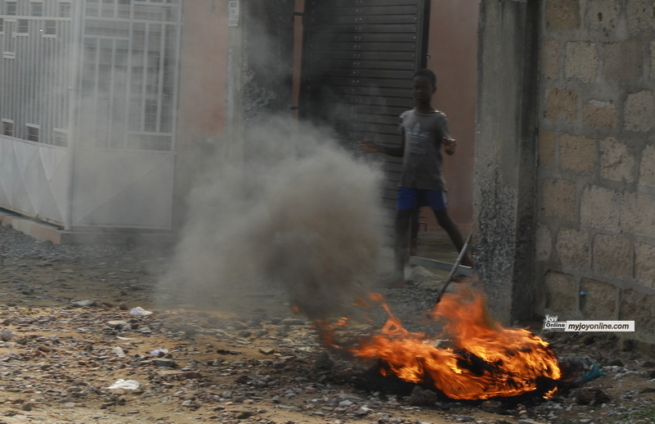The open burning of waste in residential areas affects many people in Ghana as it pollutes the air and limits air quality. This age-old habit remains rampant in many communities across the country.
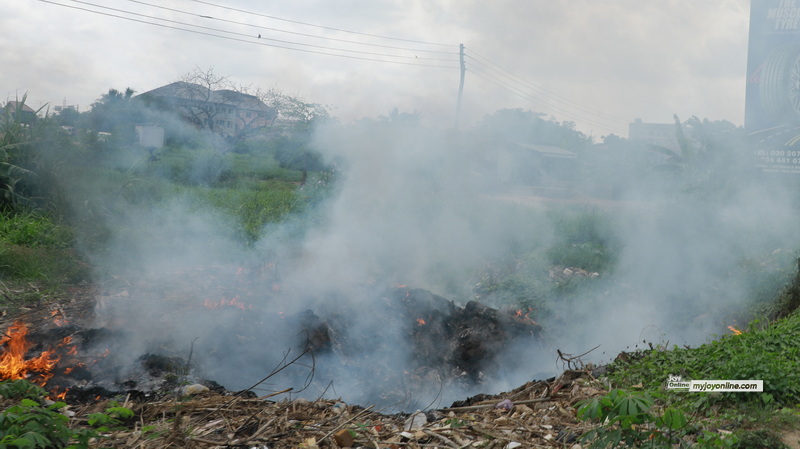
In the Ga South Municipality in Accra - including Kokrobite, Ashalaja, Ngleshie Amanfro, Galilea, Ghana Flag, American Farm, and Peace Town – four in every ten households burn their waste according to a count by this reporter.
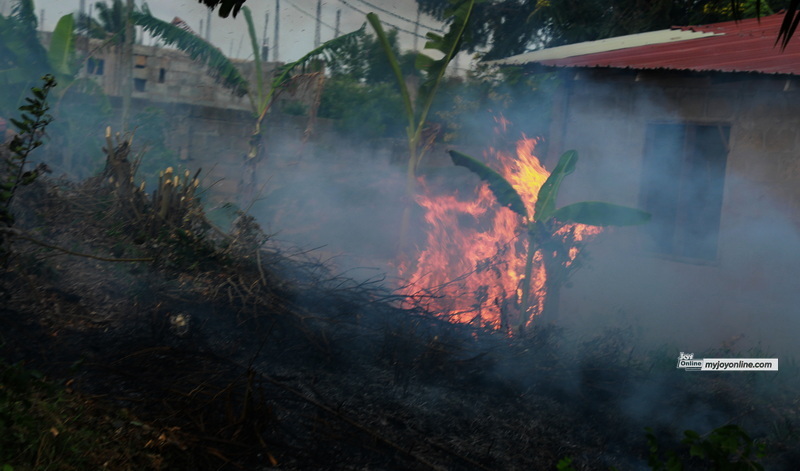
During a recent fact-finding tour by photojournalist David Andoh, residents cited irregular waste collection, poor road networks, and exorbitant waste management charges as the major reasons why they burn their waste.
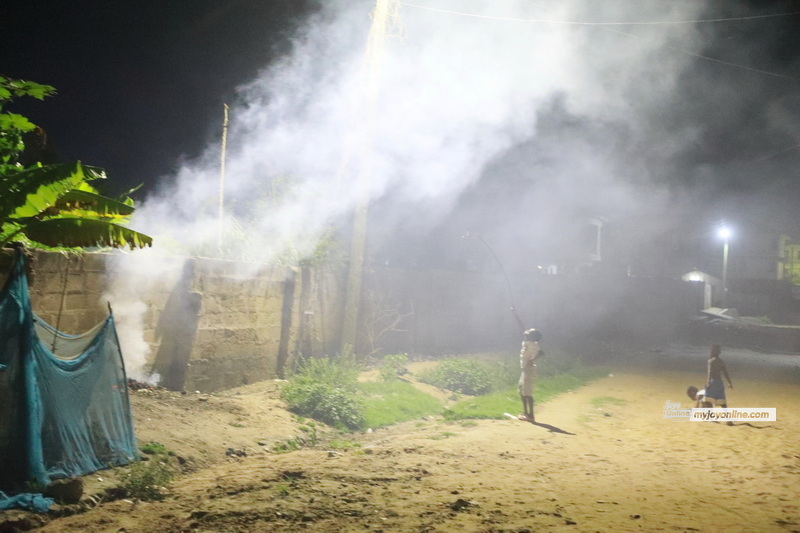
Currently, the monthly fee for the collection of a 240-litre dustbin per household stands at GHȼ50 or $US3.30. That’s a lot of money for many households in these communities.
Ghana’s economic crisis has driven another 1.3 million people into “multidimensional poverty” in the last year - meaning they live on less than $2.15 a day.
While this practice has decreased in urban areas due to stricter environmental law enforcement, it remains prevalent in peri-urban areas like Ga South, where enforcement is weak.
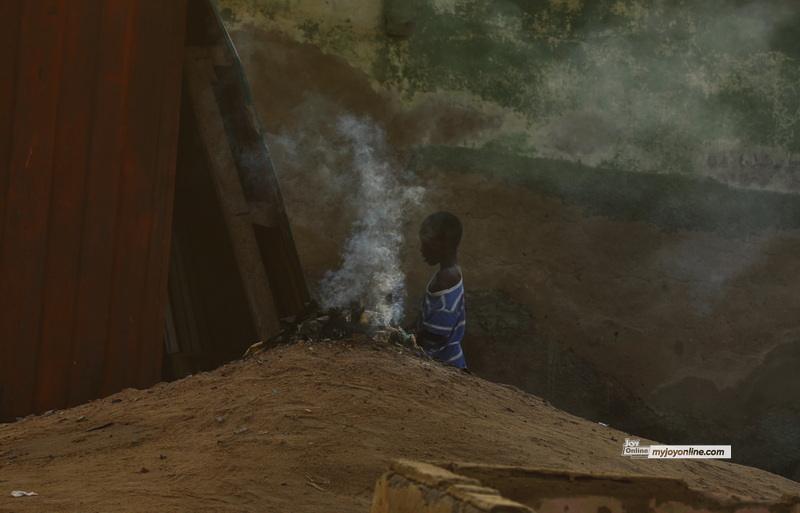
The municipality, with a population of 350,000 people, sees four out of ten households engaging in open refuse burning according to a count by this reporter.
Residents say they are aware of the smoke's irritation and discomfort but often unaware of the severe health consequences. To avoid complaints, refuse is typically burned at night or dawn.
Ghana produces a significant amount of consumer-related waste, especially plastics. According to a 2010 United Nations Commission on Sustainable Development National Report, the country generates over 30,000 metric tons of plastics annually, with an additional 12,000 metric tons imported each year.
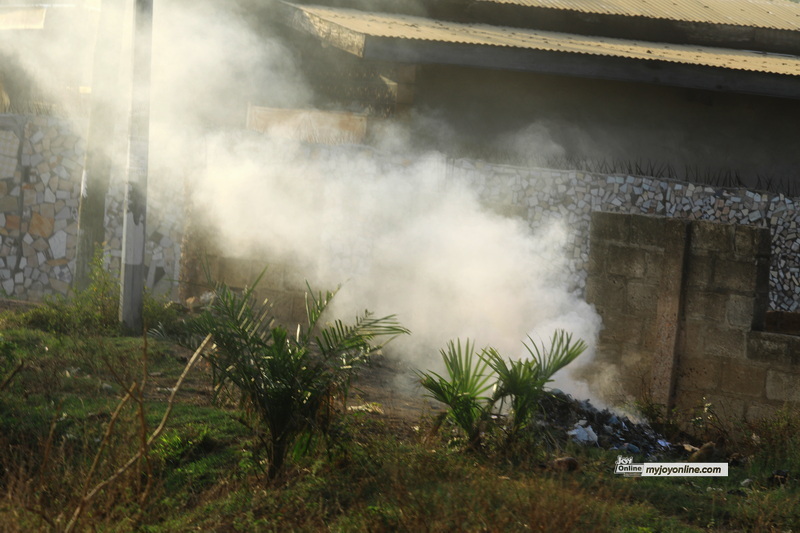
A significant volume of these plastics ends up being burned in communities, exacerbating the waste problem.
Open burning releases toxic chemicals, including nitrogen oxides, sulphur dioxide, volatile organic chemicals (VOCs), and polycyclic organic matter (POMs), which pose long-term health risks. Chemicals like benzo(a)pyrene (BAP) and polyaromatic hydrocarbons (PAHs) from burning plastics are known carcinogens. Additionally, burning contaminated agricultural bags can release harmful pesticides into the air.
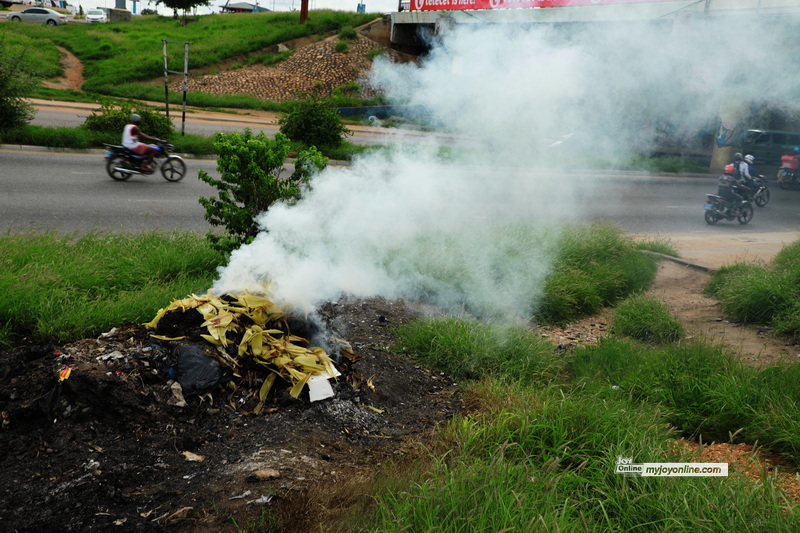
Dr Kwabena Appiah, founder of the American Farm Community Clinic in Ngleshie Amanfro, detailed the health impacts of open burning, noting its contribution to respiratory infections and its severe impact on asthmatic patients.
Smaller particles also enter the bloodstream causing and exacerbating heart disease, stroke, diabetes and cancer. Dr Appiah warns that the increasing prevalence of this practice could have dire consequences if not addressed promptly.
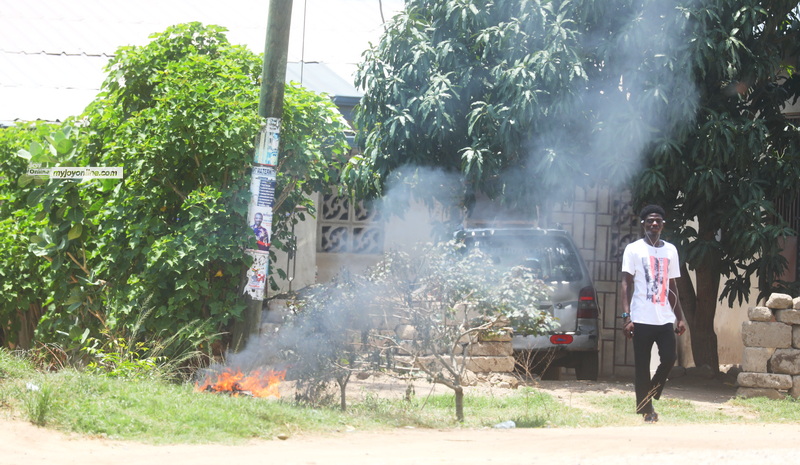
Poor road networks hinder waste management companies from effectively collecting residential waste. The lack of well-planned and efficient waste management strategies, rapid population growth, urbanization, inadequate waste bins, and low public awareness are major factors contributing to poor waste management in Ghana.

Florence Kuukyi, Environmental Public Health Director of the Accra Metropolitan Assembly, said open burning violates the sanitation by-laws and the Criminal Offences Act 29, 1960. She warned that offenders would face fines or imprisonment of up to three months. Kuukyi also criticised the media for failing to educate the public on the dangers of open burning.
Residents, such as Yaa Agyeiwaa of Ashalaja Dzifa Akily of Peace Town, reported that waste management trucks rarely service their areas, leading to community-designated dumping sites where refuse is burned. Many residents are unaware of the severe health risks, with some only acknowledging minor irritations like eye discomfort.

Addressing these issues requires improved road networks, effective waste management strategies, and heightened public awareness about the dangers of open burning according to experts. Medical officials warn that failure to act could result in significant health and environmental repercussions for the communities in the Ga South Municipality.
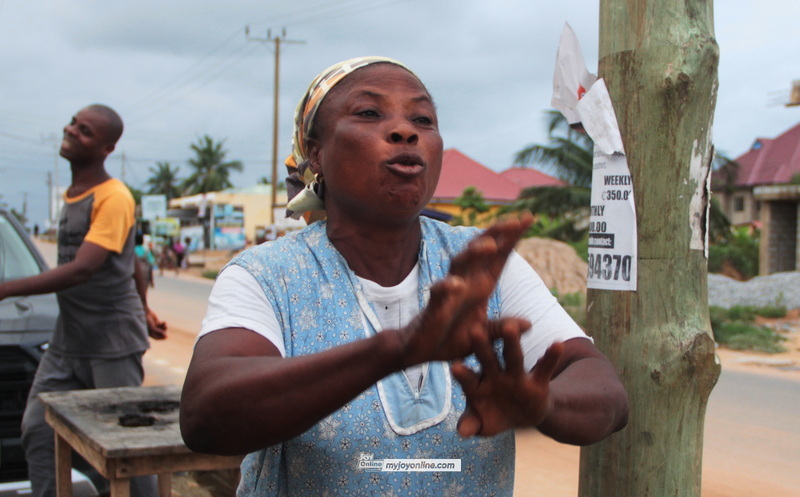
This photo essay was done in collaboration with New Narratives as part of the Clean Air Reporting Project.
Funding was provided by the Clean Air Fund. The funder had no say in the story’s content.
Latest Stories
-
ORAL is a laudable idea but political will is also crucial – CODEO
6 minutes -
Re-collation: NPP’s Osei Mensah Dapaah wins Ahafo Ano South West seat
12 minutes -
KiDi, Joe Mettle, Kwan Pa, others thrill patrons at MTN Festival of Nine Lessons and Carols
35 minutes -
Re-collation: Patrick Boamah wins Okaikwei Central seat
49 minutes -
Re-collation: NPP’s Eric Nana Agyemang-Prempeh declared winner of Ahafo Ano North
51 minutes -
Chaos as Ebi Bright demands total re-collation amid Dafeamekpor fury at EC G/A Office
56 minutes -
NPP’s Charles Forson declared winner of Tema Central seat
2 hours -
Re-collation: Annoh-Dompreh declared winner of Nsawam-Adogyiri seat
2 hours -
Low trust in EC fueling ‘protect the ballot’ mentality among political parties – CDD-Ghana
2 hours -
Ongoing re-collation illegal – Ablakwa
2 hours -
Tema Central re-collation stalls as returning officer cites threats on his family amid chaos
2 hours -
Akufo-Addo grants Presidential Charter to Entrance University of Health Sciences and 13 others
2 hours -
Election re-collation: Go to IPAC and dialogue, says Rev. Dr. Fred Deegbe
2 hours -
We have no knowledge of court petition to halt re-collation – EC
3 hours -
Televising re-collation will boost public confidence in election results – Barker-Vormawor
3 hours

